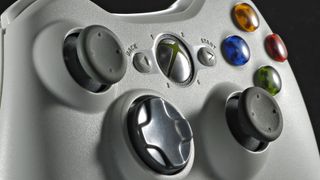AMD chip on new Xbox could be the death of backwards compatibility
Sony's smile gets wider

The new Xbox might forgo backwards compatibility to give it a better cross-platform architecture, if the latest set of leaked specs are to go by.
According to Bloomberg, the next Xbox will employ an AMD system-on-chip that uses the Jaguar architecture, shifting to x86 architecture – the same as the PS4 - and dropping the Power PC technology found on the Xbox 360.
If true, this will put it on a similar footing to Sony's effort but it also makes the prospect of playing old games on the new console an unlikely one, given the change in hardware configuration to x86.
Chances are that we won't see the same SoC as the PS4 on the Xbox "Durango", but x86 will make game development easier and cheaper.
The disc is dead, long live the disc
As soon as we heard that Microsoft was planning the release of a more scaled-down Xbox 360, it set alarm bells ringing that backwards compatibility might be a no-show. Though we did point out that Nintendo didn't follow this strategy with the Wii U/Wii Mini, but there you go.
We do know that the PS4 won't be offering native support for old games either, but it is planning to stream Playstation 1, 2 and 3 games to users instead. So could Microsoft be planning the same move?
Microsoft has been tipped to be unveiling the next Xbox on May 21, just over a month away. In the meantime, we had heard that Microsoft was playing catchup with the next Xbox after the big PS4 reveal.
Get daily insight, inspiration and deals in your inbox
Get the hottest deals available in your inbox plus news, reviews, opinion, analysis and more from the TechRadar team.
Sony confirmed earlier this year that AMD will also be providing chips for Sony's PlayStation 4, putting it and Microsoft on a similar footing right now.
Via Eurogamer
Hugh Langley is the ex-News Editor of TechRadar. He had written for many magazines and websites including Business Insider, The Telegraph, IGN, Gizmodo, Entrepreneur Magazine, WIRED (UK), TrustedReviews, Business Insider Australia, Business Insider India, Business Insider Singapore, Wareable, The Ambient and more.
Hugh is now a correspondent at Business Insider covering Google and Alphabet, and has the unfortunate distinction of accidentally linking the TechRadar homepage to a rival publication.
Most Popular



